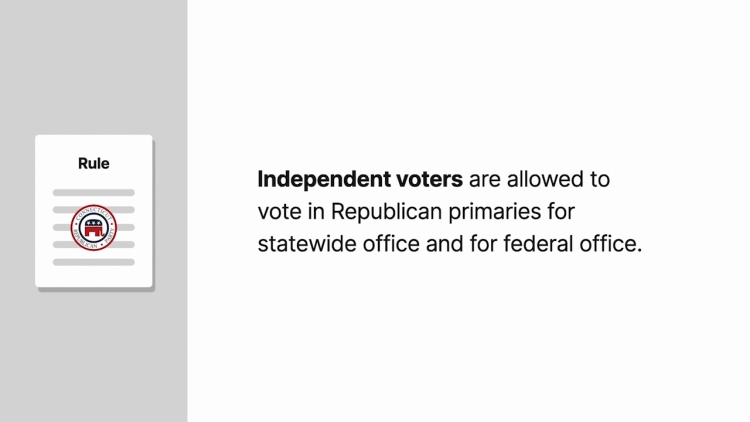Tashjian v. Republican Party of Connecticut
United States Supreme Court
479 U.S. 208 (1986)
- Written by Jamie Milne, JD
Facts
Under Connecticut law, a political party’s candidates for federal and state offices were selected via a party convention and, if necessary, a primary election between candidates receiving more than 20 percent of the vote at convention. Primaries were paid for by the state. A long-standing election statute required voters in a party’s primaries to be registered members of that party. The Republican Party of Connecticut (RPC) (plaintiff) adopted a party rule allowing independent voters, meaning registered voters not affiliated with any political party, to vote in Republican primaries for federal and most state offices. Republicans in the state legislature proposed amending the statute to accommodate the new party rule. The proposal was rejected. The RPC sued Julia Tashjian (defendant), Connecticut’s secretary of state, who was responsible for enforcing the election statute. The suit alleged that the statute violated the First and Fourteenth Amendments by impermissibly restricting freedom of association. Tashjian countered that the infringement on freedom of association was permissible because it served the compelling government interests of ensuring administrability, preventing raiding, avoiding voter confusion, and ensuring the responsibility of party government. The district court granted summary judgment in the RPC’s favor, and the court of appeals affirmed. The United States Supreme Court granted certiorari.
Rule of Law
Issue
Holding and Reasoning (Marshall, J.)
Dissent (Stevens, J.)
Dissent (Scalia, J.)
What to do next…
Here's why 904,000 law students have relied on our case briefs:
- Written by law professors and practitioners, not other law students. 47,100 briefs, keyed to 995 casebooks. Top-notch customer support.
- The right amount of information, includes the facts, issues, rule of law, holding and reasoning, and any concurrences and dissents.
- Access in your classes, works on your mobile and tablet. Massive library of related video lessons and high quality multiple-choice questions.
- Easy to use, uniform format for every case brief. Written in plain English, not in legalese. Our briefs summarize and simplify; they don’t just repeat the court’s language.





